Pregnant cannabis users deal with stigma and stress over the possibility of losing custody, all because they medicate with a plant that is still illegal on a federal level. Despite the legal statuses of cannabis in each state, the Federal classification supersedes in a situation involving the local child protective service agency. Even before a […]
Blog
What Pregnant Cannabis Users Need To Know About Toxicology Screenings
Pregnant cannabis users deal with stigma and stress over the possibility of losing custody, all because they medicate with a plant that is still illegal on a federal level. Despite the legal statuses of cannabis in each state, the Federal classification supersedes in a situation involving the local child protective service agency. Even before a […]
Why 7-Eleven Is Waging War Against Oklahoma Marijuana Dispensaries
Why 7-Eleven Is Waging War Against Oklahoma Marijuana Dispensaries
Oklahoma permits a free-market system for medical cannabis, or as close to one as possible.
The post Why 7-Eleven Is Waging War Against Oklahoma Marijuana Dispensaries appeared first on The Fresh Toast.
Herbal Refreshments: What You Need to Know About Blending Herbs in Your Weed
Image via
For many pot smokers, a spliff — or a joint or blunt rolled with weed and tobacco — is the preferred method for getting high. The appeal is understandable!
Spliffs burn slower than pure-weed joints and they enable the roller to regulate potency. Spliffs also help preserve weed because you use less flower than you would rolling-up a traditional j. Still, the downside is obvious: Tobacco has a number of serious adverse health risks.
Combining the healing grace of THC and CBD with the ugly tolls of tobacco may pose a steep price to pay for the instant gratification of a spliff. While THC and CBD may have some anti-cancer and cancer-fighting properties, tobacco is known to cause cancer. It also has other adverse effects on the heart, brain, gums, skin, and cardiovascular system.
Fortunately, weed smokers are an elevated, imaginative lot and always come up with crafty solutions. The answer often arises by returning to the lush, fruitful garden that blessed us with the Green Goddess in the first place: Mother Earth.
As a way to avoid tobacco, joint rollers frequently combine non-toxic herbs with their weed to create finer, healthier, more satisfying smokes. But now a bunch of new questions need to be answered: What are in these herbal blends? What do they do and which ones work best? Is it true that catnip can get me high?
If you’re curious about rolling your own herbal blends, look no further. MERRY JANE’s got you covered. Duh!
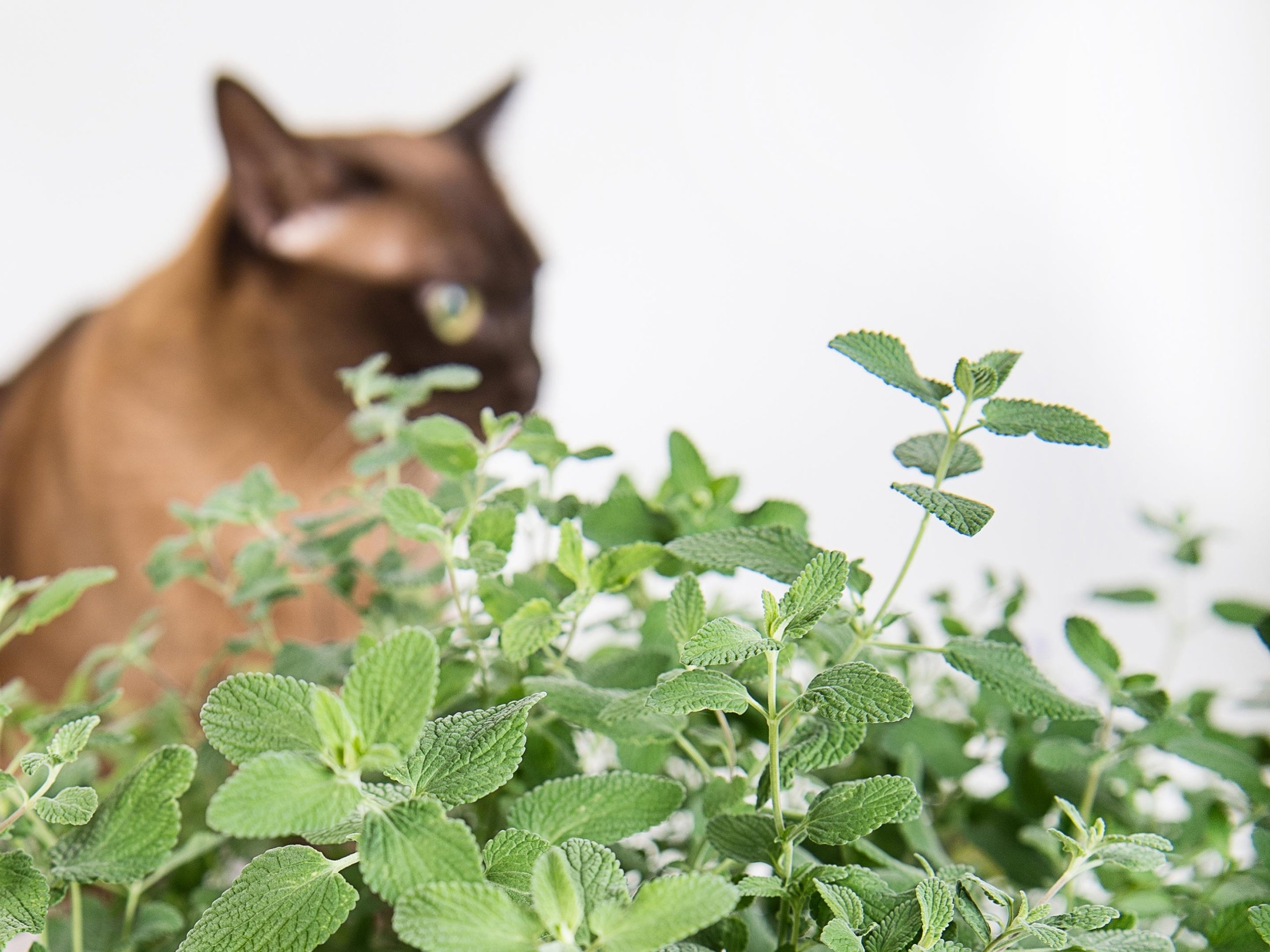
Catnip
Nepeta cataria, aka: catnip, is famous for its fast-acting, unmistakably psychoactive effects on felines. In fact, it works so well that when you see a cat on catnip you have to wonder, Does this stuff actually get Fluffy high? While mixing catnip in with your cannabis won’t turn you into a cat or get you majorly blitzed, the herb does deliver smooth, sedating effects on humans. It aids in releasing tension and amplifying relaxation.
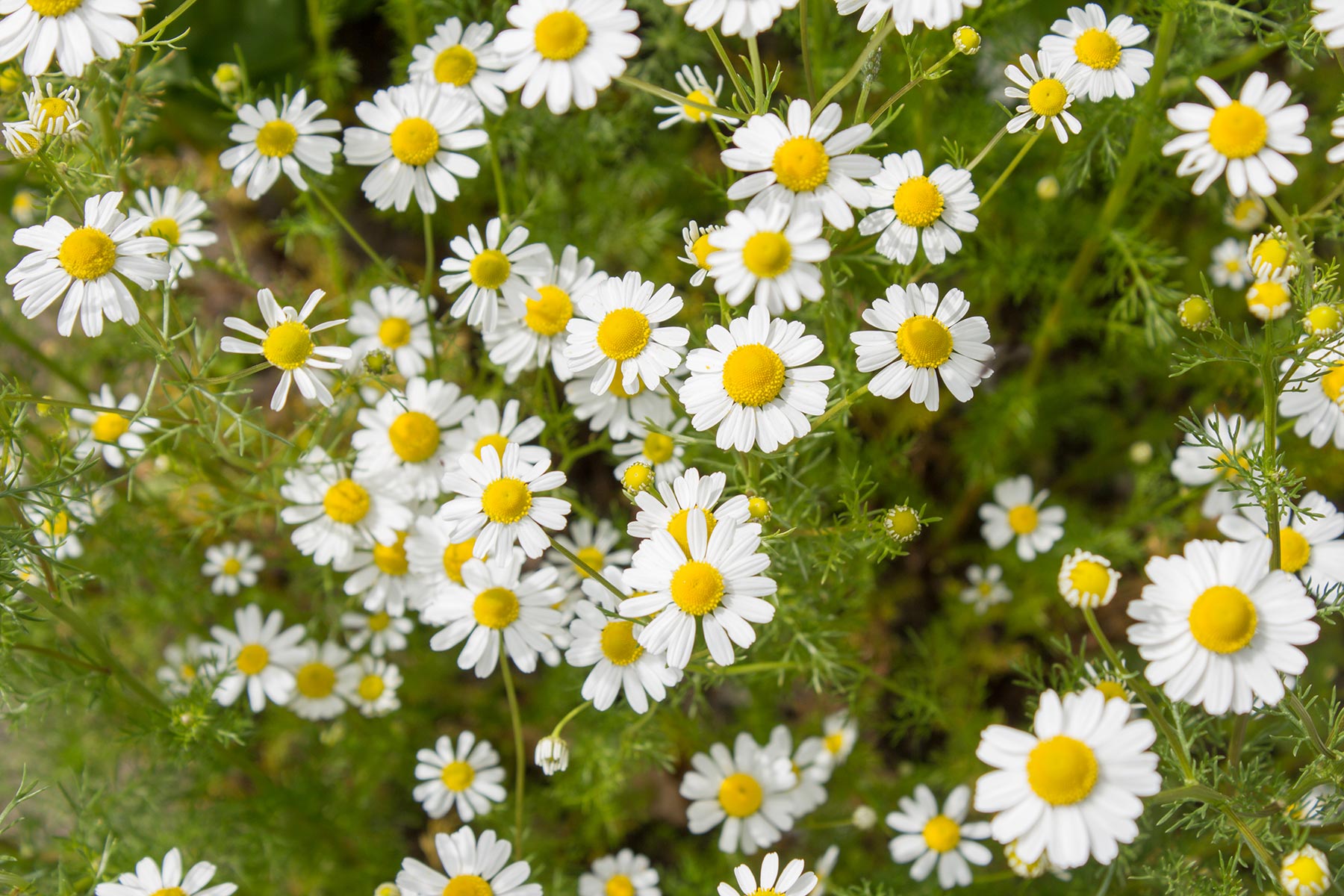
Chamomile
Mild, lemony chamomile is familiar to most of us in tea form, where it has proven to be a go-to elixir for calming nerves, soothing sore throats, and settling upset stomachs. Chamomile flowers grow ubiquitously in the wild, and contain various essential oils and flavonoids that are said to contribute to overall wellness and homeostasis. When rolled into a joint of clean cannabis, chamomile levels out the high while ensuring deep relaxation. It’s also safe enough to use in unlimited amounts. So, roll away!
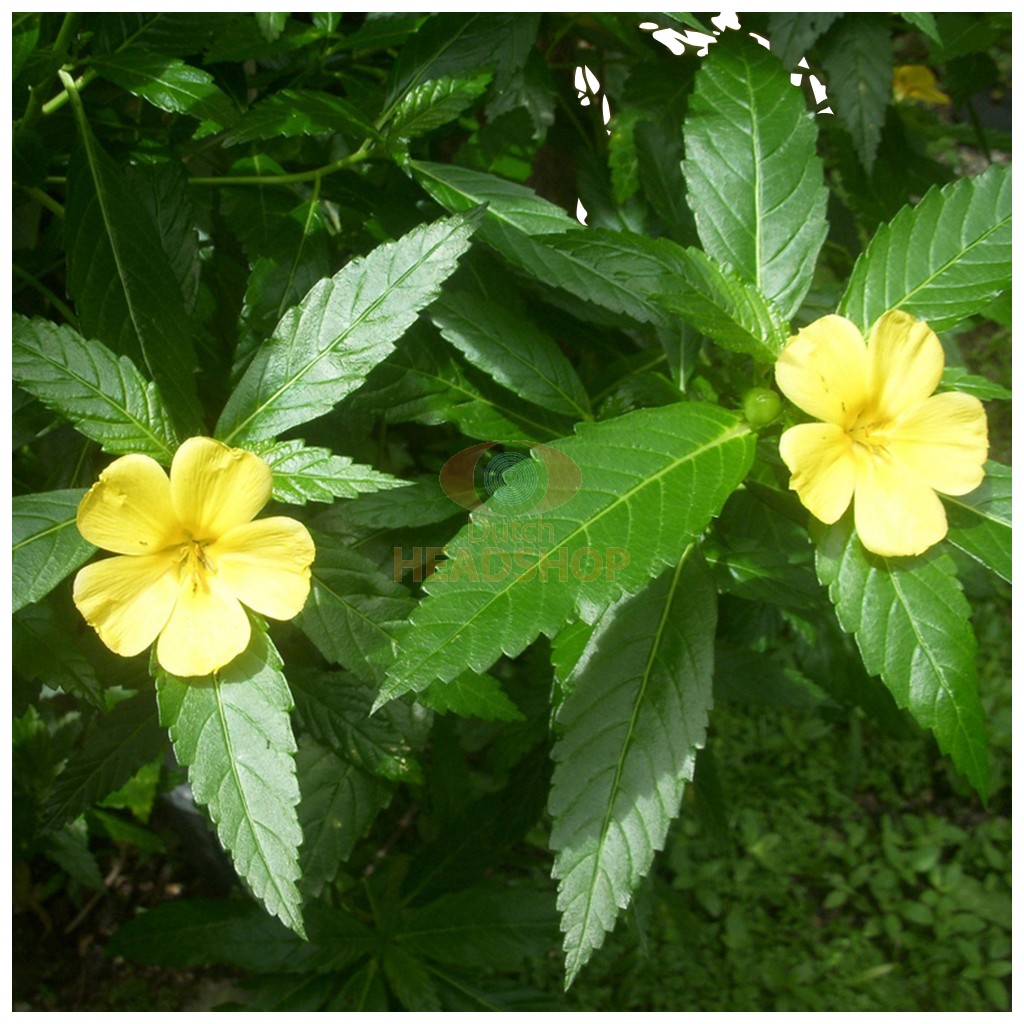
Damiana
Loving weed can help you see the beauty in all weeds, like damiana, which adds sensual spice to your high. Loaded with terpenes, tannin, resins, and caffeine, damiana delivers a low-key, euphoric buzz on its own and has been employed for centuries as an aphrodisiac in its native land Mexico. Combined with marijuana’s ability to intensify the senses, many damiana devotees spark it up as a way to help things get hot in the bedroom.

Hops
Have you ever wondered why weed pairs so well with beer? Perhaps it’s because they both make you feel great. Or maybe it’s because they come from the Cannabaceae family.
Regardless, hops and cannabis plants contain myrcene, a terpene renowned for alleviating anxiety, elevating moods, and soothing the body. No wonder numerous brewers have created cannabis-infused beers. It also makes sense that adventurous joint rollers add hops into their herbal mixes for a fluid high that makes going with the flow easier than ever.
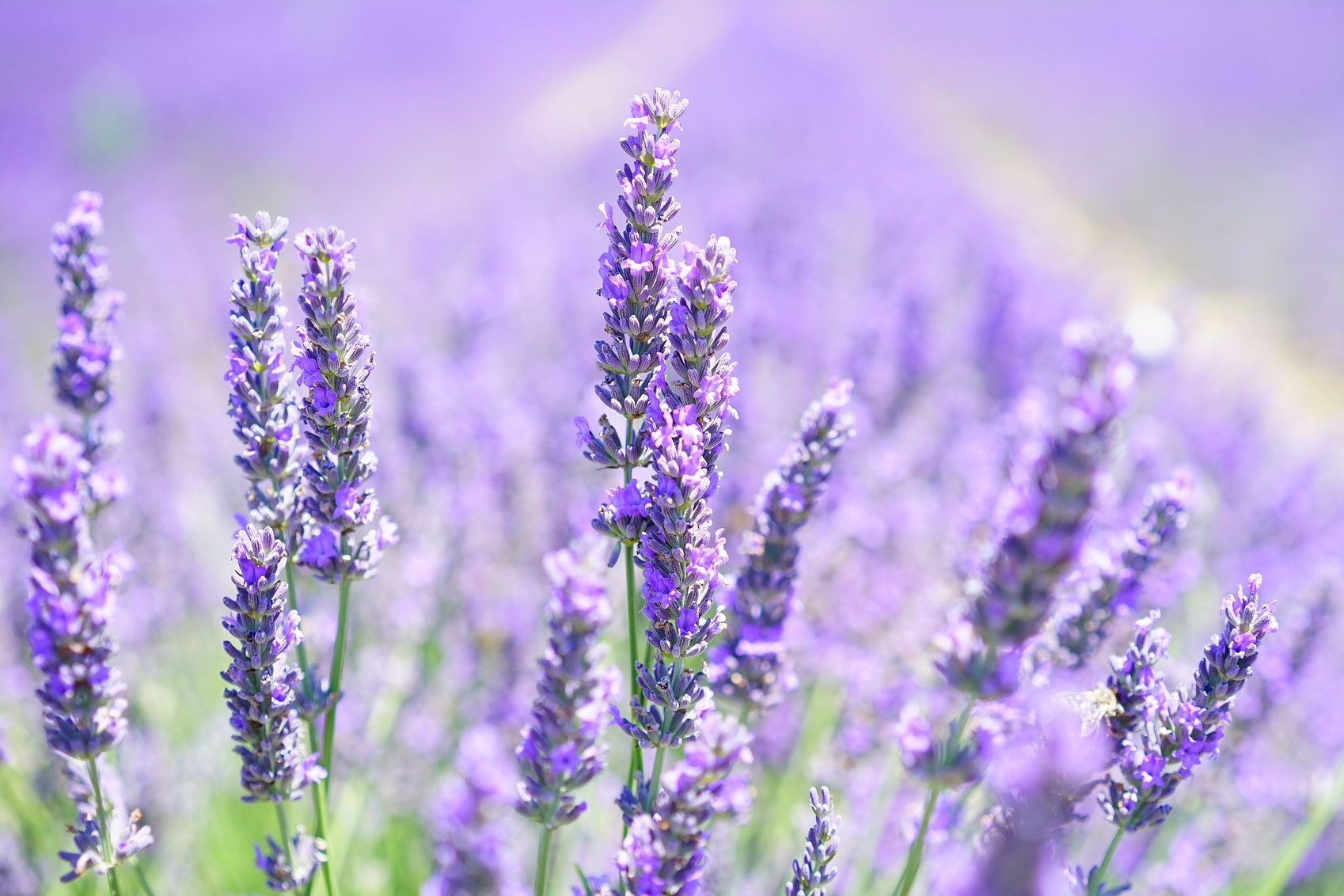
Lavender
This lush, aromatic herb is abundant in gardens all over the planet. Lavender is a universally recognized therapeutic herb that has dozens of applications, from healing burns to minimizing stress to improving sleep to upgrading the experience of smoking pot.
Like multiple strains of cannabis, lavender possesses linalool, a terpene hailed for its anti-inflammatory qualities and ability to reduce tension. Beyond its nourishing flavor, many stoners also credit lavender with reducing harshness and easing throat strain when smoking.
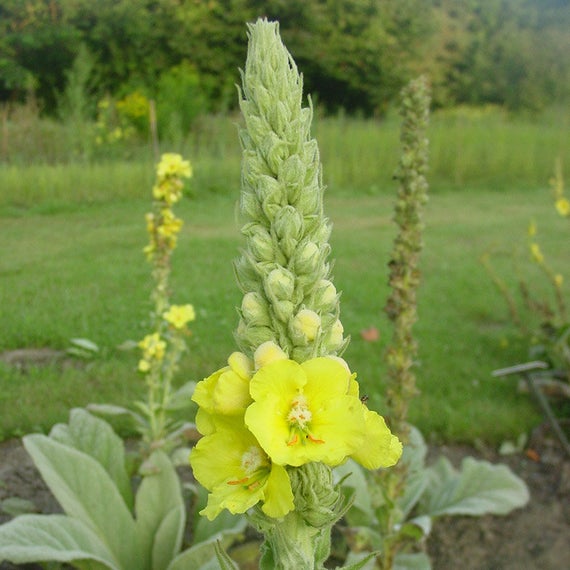
Mullein
Mullein is a versatile herb and blends well with sativa to enhance focus, and indica to help wind down. Either way, mullein burns smooth, delivers a woodsy flavor, and elicits a campfire aroma — instantly evoking memories of standing in a circle and passing joints for the first time.
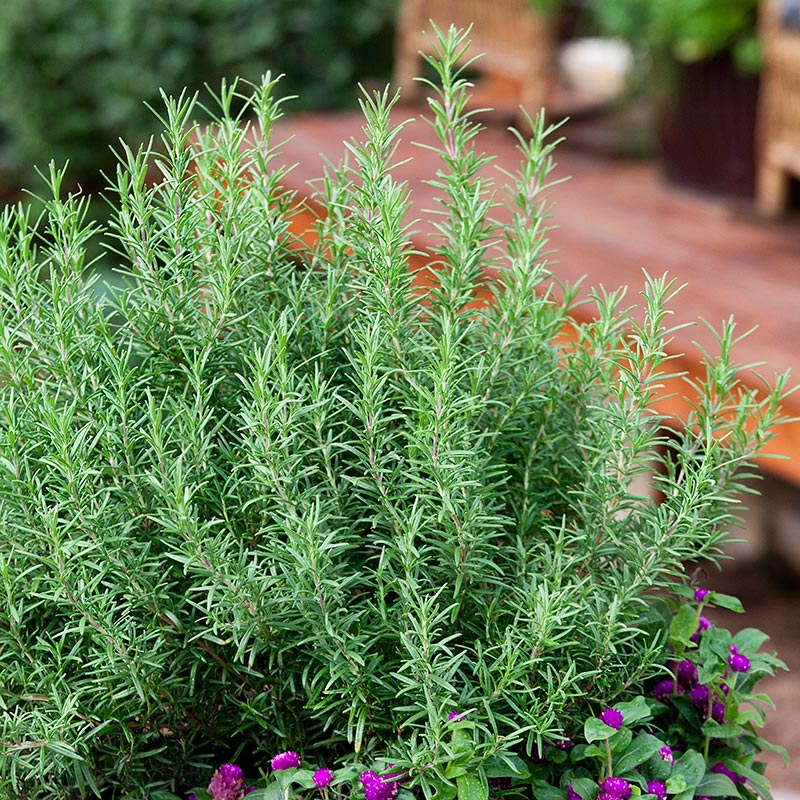
Rosemary
As a cooking ingredient, rosemary is a taste sensation. As a plant that contains the terpene beta-caryophyllene (BCP), rosemary is a dream spice to pair with pot. It improves cognition, awareness, and immune system functions, while also reducing an array of irritations. If you’re looking for a good way to wake up and take care of your brain, rosemary is an excellent herb to do just that.
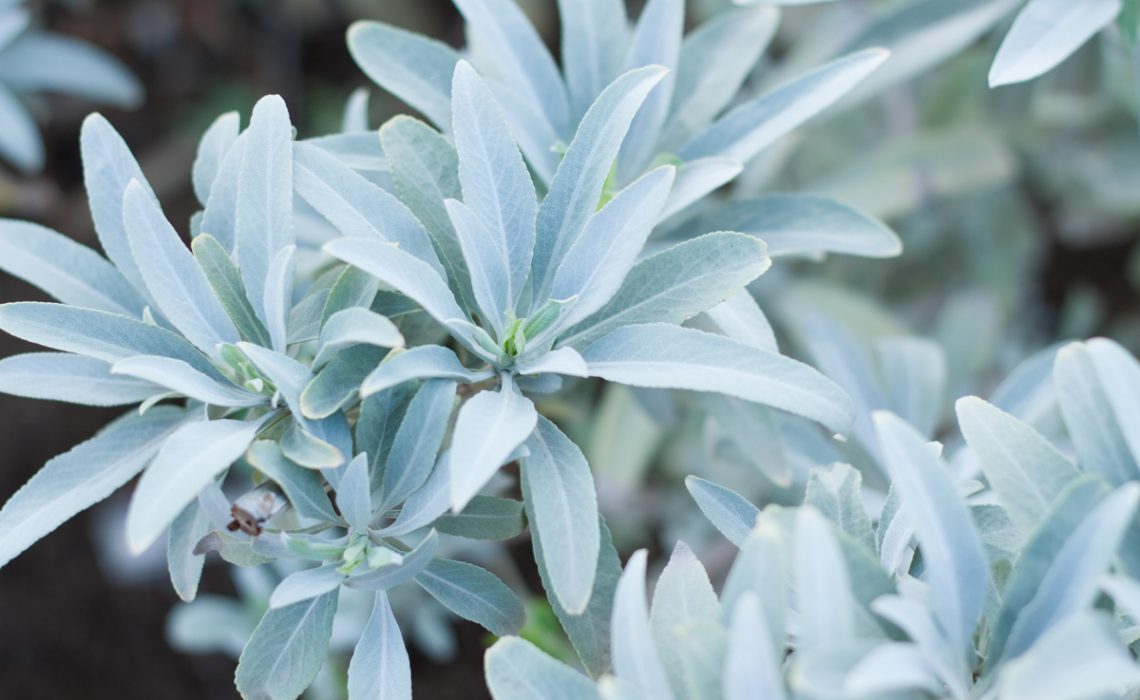
Sage
Burning sage as a cleansing ritual is an ancient Native American tradition. Burning sage as an extra ingredient in your weed is also a transcendent practice that helps open minds, ease anxiety, and reduce inflammation. Because sage is so powerful, a small amount is all many smokers need to maximize its miraculous, cleansing effects.
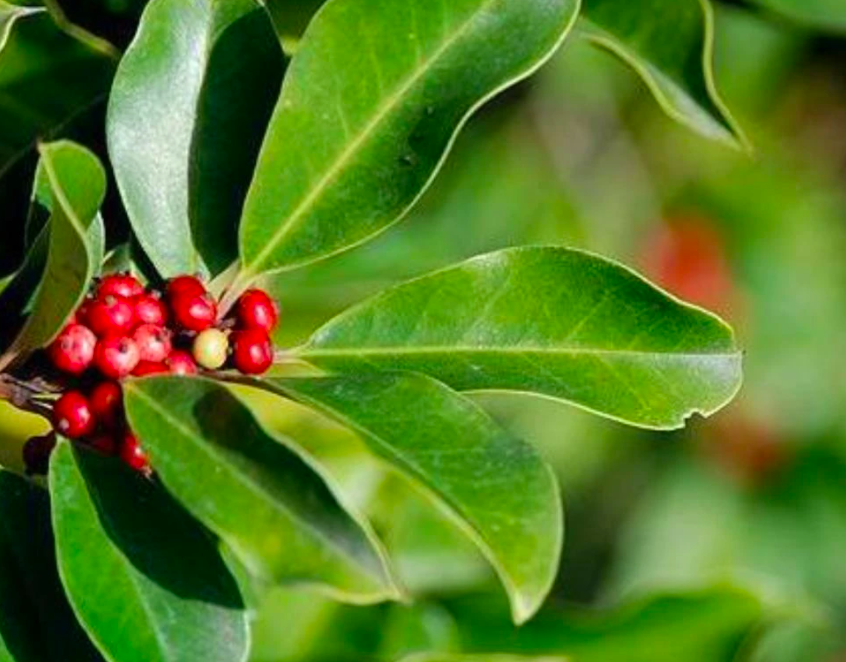
Yerba Mate
Yerba mate offers two big-time benefits when rolled with cannabis: first, it’s a source of ultra-clean energy, which is why it’s a key ingredient in a number of high quality teas; second, it tops tobacco when it comes to slowing the burn of your joint. Uplifting and eye-opening on its own, yerba mate goes especially well with sativa and stands as a favorite among those who wake-and-bake.
Breaking: US Attorney General falsely targeted 10 cannabis companies, whistleblower says
DOJ staffer says William Barr ordered antitrust investigations of cannabis mergers, just because Barr hates legalization.
The post Breaking: US Attorney General falsely targeted 10 cannabis companies, whistleblower says appeared first on Leafly.
Study Shows IBS Patients Who Use Cannabis Spend Less Time In Hospital
A recent study suggests that IBS patients who use cannabis have shorter hospital stays.
Study Shows IBS Patients Who Use Cannabis Spend Less Time In Hospital
A recent study suggests that IBS patients who use cannabis have shorter hospital stays.
How Does Marijuana Influence Your Anxiety?
How Does Marijuana Influence Your Anxiety?
Marijuana is a stress relieving property for many. It’s also a common anxiety inducing substance.
The post How Does Marijuana Influence Your Anxiety? appeared first on The Fresh Toast.
4 Ways Weed Works in The Bedroom
4 Ways Weed Works in The Bedroom
For some time, the assumption has been made that being high probably isn’t going to improve what happens in the bedroom, but research says otherwise.
The post 4 Ways Weed Works in The Bedroom appeared first on The Fresh Toast.
7-Eleven Is Waging War on Medical Cannabis Businesses in Oklahoma
Several medical cannabis businesses are being forced to look for new homes after 7-Eleven Incorporated bought the buildings they rented and refused to renew their leases.
This past January, 7-Eleven Inc., the Dallas-based convenience store giant, bought out Oklahoma’s local 7-Eleven franchise and took ownership of several buildings in Oklahoma City. At the time of the sale, the company’s property manager sent an email to all of the buildings’ tenants explaining that the takeover would not change anything regarding their lease assignments.
Many of the tenants’ leases, including several medical marijuana dispensaries, processors, and grow facilities, were set to expire on July 1 of this year. Based on the previous email, the tenants expected their leases to automatically renew. But on June 16, each cannabis business renting these properties was notified by phone that their leases would not be extended.
Effectively, the company’s decision is forcing these businesses to find a new home within the next two to six weeks — during a global pandemic. The decision affects several medical marijuana dispensaries, including Nurses Station and Gayle’s Dispensary, as well as cannabis processing and cultivation companies including JKJ Processing Inc.
“I couldn’t believe it, to be honest,” said John Koumbis, owner of JKJ Processing, to The Oklahoma Chronic. “It’s utterly ridiculous of them to shove that onto us at this kind of short notice, and the worst part is, there are several hundreds of us that are going to be impacted by this. The space we occupy was empty for 13 years before we leased it from them, and I’m not sure what they’re thinking with this, honestly.”
Koumbis asked the property manager why the company had made this abrupt decision, and was told that 7-Eleven is refusing to work with any cannabis business. “They don’t believe in it, and they’re not renewing any leases going forward with anyone who’s in the marijuana business and leases from 7-Eleven,” he explained.
Other medical marijuana business owners received similar answers from the property manager. Starla Norwood, owner of Nurses Station — a dispensary that primarily serves patients age 50 and older — told local news outlet KFOR that 7-Eleven considers state-legal pot businesses to be engaged in “criminal activity and money laundering,” despite the fact that “there are 300,000 Oklahomans with medical cards.”
Christian Oliver, owner of Gayle’s Dispensary, told KFOR that “there wasn’t any kind of written notice, there wasn’t any kind of attempt at dialogue. There wasn’t any kind of approach to investigate it. It was just like no get out… The new owner does not want to lease to the cannabis industry. It’s a company out of Texas so I have until July 31 to vacate the premises.”
During his call with the property manager, Koumbis discovered that the company actually hid its plans from these businesses. According to the manager, corporate executives decided to kick cannabis businesses out in January, but did not notify them of this decision until two weeks before their leases expire.
Koumbis told the Chronic that the company’s decision was especially abhorrent given the fact that the building his business rented “sat empty for over twelve years before we leased it… It took a lot of time and money just to get it up to code, and so many other mom and pop shops are in the same boat. They’ve sunk their life savings into these places, and they’re just getting pushed out now.”
Although Oklahoma is already in the midst of re-opening businesses after the COVID-19 quarantine, these businesses are struggling to find new homes with such short notice. “We’re trying to look for a new place but it’s difficult. It’s not an easy thing to do,” said Norwood to KFOR. Many places will refuse to rent to a weed business, and “the ones that are available want really high rent… It is devastating. This is just heartbreaking for my entire family.”
Despite these setbacks, Oklahoma actually boasts one of the most progressive and robust medicinal cannabis industries in the entire US. The program, which was approved by voters in 2018, allows doctors to prescribe pot for nearly any condition, and the program has been growing by leaps and bounds ever since. In April, the state sold $73 million worth of medical pot, a record figure even exceeding the monthly sales of some adult-use states.
